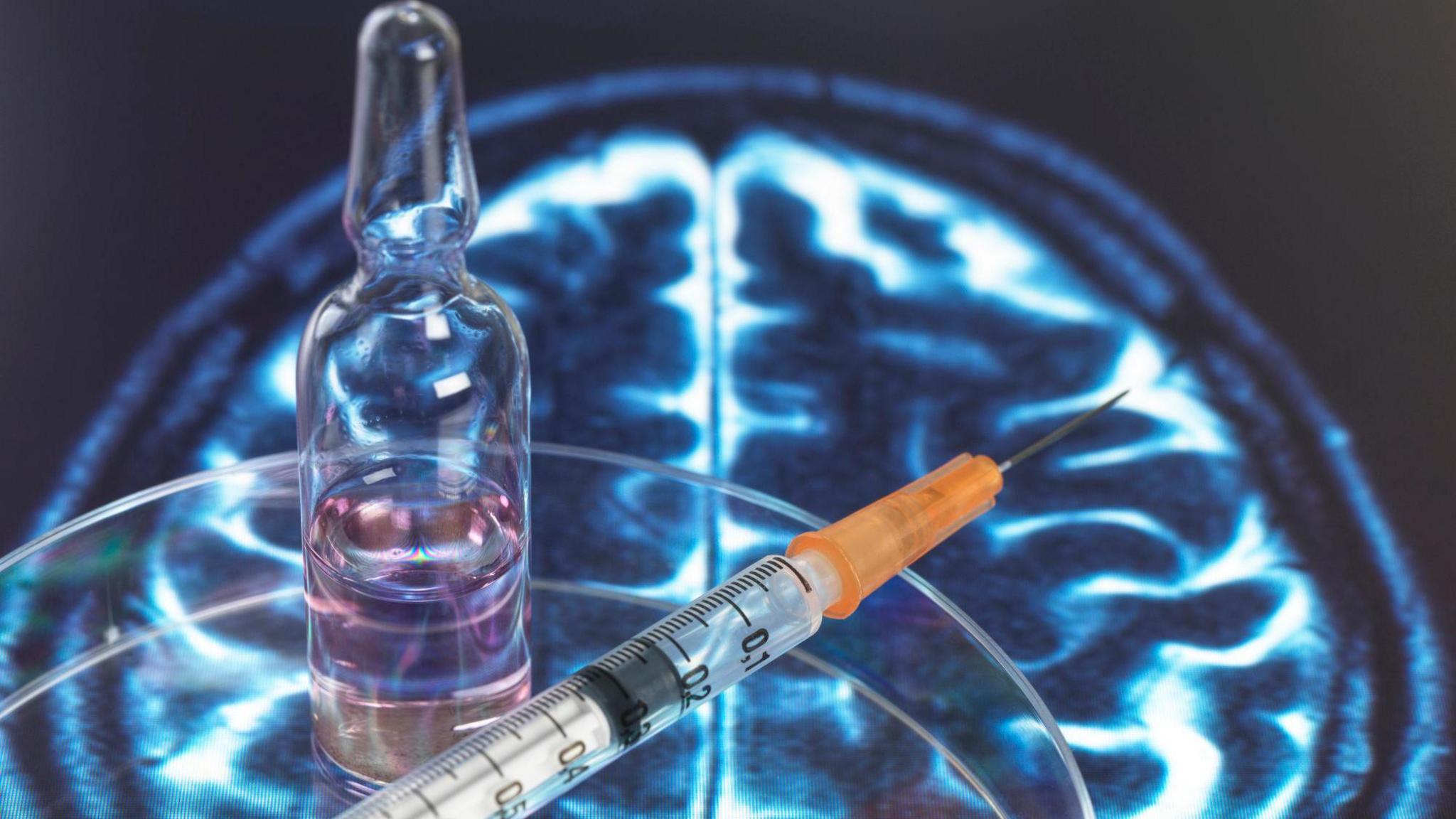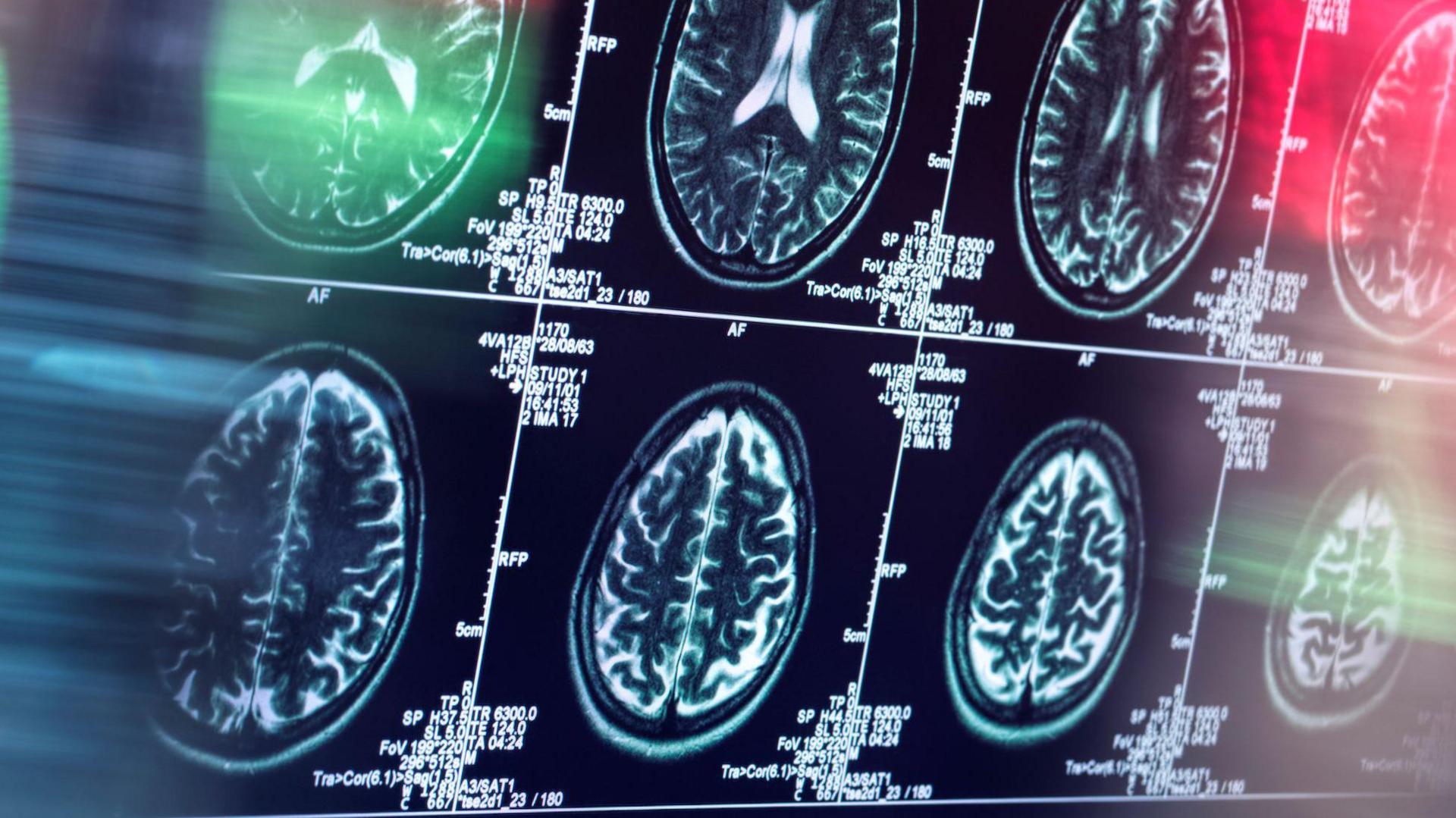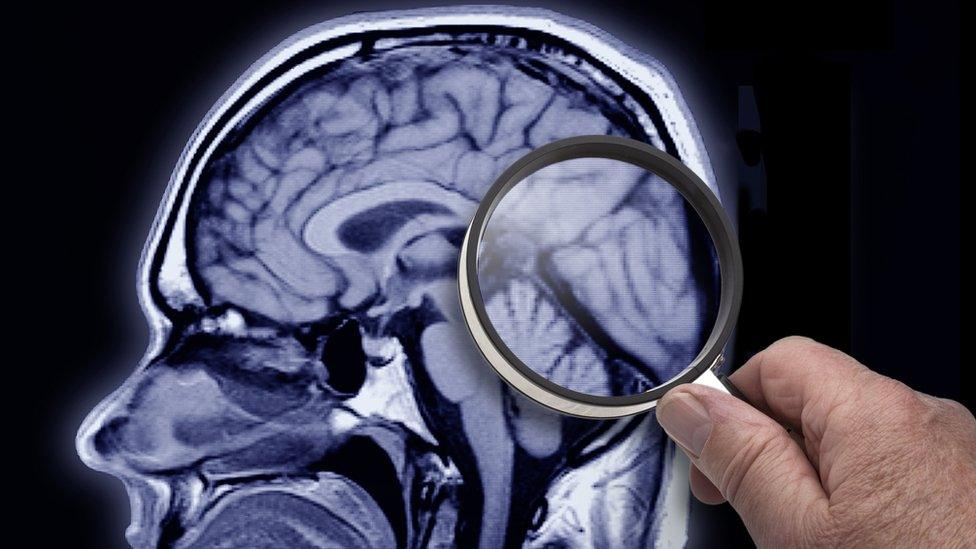NHS will not fund new drug to slow Alzheimer’s

- Published
A new drug that slows the pace of Alzheimer's disease is too expensive for too little benefit to be used on the NHS in England, the drugs spending watchdog says.
Donanemab was hailed as a turning point in the disease last year.
But the National Institute of Health and Care Excellence (NICE) said the drug provided only a small benefit to patients.
And it came with huge costs, including the price of the drug and monitoring for significant side-effects such as brain swelling and brain bleeds.
People do not get better on donanemab. It is not a cure for Alzheimer's disease, but it slows the progression of the disease.
It works by clearing a sticky protein from the brain - called amyloid - which is one of the hallmarks of Alzheimer's.
Donanemab was one of a pair of drugs to generate huge excitement because they were the first to show that Alzheimer's could be slowed down in trials.
Earlier today, the drug was approved and given a licence by the safety regulator, the MHRA, which means it can be prescribed privately.
But this doesn't mean it can automatically be offered free on the NHS.
The NHS does not have a cap on how much it can spend on a drug - it pays for some therapies that cost more than a million pounds.
Whether or not a drug is given the green light depends on how big a difference it makes - the more effective and transformative the drug, the more the NHS is willing to pay.
The health spending body NICE has ruled the drug would not be a good use of taxpayers' money and was five-to-six times more expensive than the NHS normally considers acceptable.
It said donanemab slowed cognitive decline by four to seven months in trials. This could keep people living independently at home for longer.
“This is just not enough benefit to justify the additional cost to the NHS," said Helen Knight, director of medicines evaluation at NICE.
“I know this will be disappointing news, but this is an emerging field of medicine and there are other treatments being developed.”
It is not known exactly how much the drug would cost the NHS. In the US it has an official price of around £25,000 a year per patient. However, that is just the cost of the drug. Surrounding care - including an infusion every four weeks and checking for side-effects - significantly adds to the bill.
It is estimated that around 70,000 adults in England would have been eligible for treatment with donanemab. Wales and Northern Ireland normally adopt NICE decisions on drugs while a separate body makes recommendations in Scotland.
The decision to reject the drug was made despite potential savings to the NHS and social care being considered.
Will the NHS ever pay for the new era of dementia drugs?
- Published23 August 2024
The drug is not free of risk.
Brain swelling was a common side-effect in up to a third of patients in the donanemab trial. For most, this resolved without causing symptoms. However, two volunteers, and possibly a third, died as a result of dangerous swelling in the brain.
It means people need genetic testing before they are allowed to go on the drug and regular monitoring while being given donanemab.
NICE also said the drug could only be used for 18 months and the impact beyond that was uncertain.
Another drug to slow Alzheimer's - lecanemab - was found to be too costly for the NHS in the summer.
Prof Fiona Carragher, from the Alzheimer’s Society, said these drugs offered a "new horizon of hope in the fight against dementia".
She described the decision as "disheartening" but said the organisation respected the decision not to fund it on the NHS.
Prof Tara Spires-Jones, the president of the British Neuroscience Association, said: “While people living with dementia and their loved ones will undoubtedly be disappointed by the decision not to fund this new treatment on the NHS, the good news that new treatments can slow disease even a small amount is hopeful."
Hilary Evans-Newton, from Alzheimer’s Research UK, said: "Today’s announcement marks another frustrating setback for people affected by Alzheimer’s disease.
"Dementia remains the UK’s leading cause of death, and without action, an ageing population means more families will be affected, driving up NHS costs through emergency admissions and care."
Related topics
- Published22 August 2024

- Published4 April 2024
